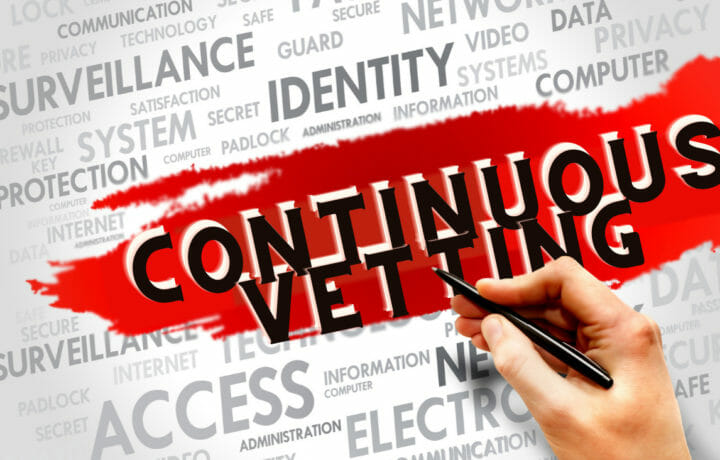Continuous vetting (CV) is still raising some questions for security clearance holders and applicants. As policy catches up with implementation, more questions and what-ifs will arise.
Think back to when you originally applied for a clearance and filled out the SF-86. A common question for security clearance applicants is if they will have to undergo a personal subject interview as a part of the background investigation. On the CleranceJobsBlog, one subscriber is clarifying how these interviews will factor into CV, especially for those in the military.
Do you know if random interviews with people are conducted as part of the continuous evaluation/continuous vetting program for people in the military with a secret level clearance?
Continuous Vetting, SUBJECT INTERVIEWS, investigations, and SELF-REPORTING
Active-duty military, along with government and industry, are subject to enrollment in CV if you maintain security clearance. This open-ended review process evaluates the background of the clearance holder, or person assigned to a sensitive position, through automated record checks from criminal, terrorism, and financial databases, along with public records, throughout the time of the person’s eligibility.
Subject interviews under this process could be scheduled under CV only if adverse information is discovered, validated, and an investigation is initiated. Keep in mind that many adverse issues that would be flagged in CV are topics you should be self reporting, For more information on what you need to self-report, view a recent latest video update.
Subject interviews occur at both the Secret and Top Secret-levels to maintain security clearance. Many background investigators on the thread note how the automated checks and self-reporting play into the process.
So, are the interviews random? No.
When you self-report to your security officer, you are admitting to something which is always seen better than hiding it. If you don’t self-report, the Defense Counterintelligence and Security Agency (DCSA) will receive a notification through their record checks and decide whether the alert is legitimate or worth more investigating – which can mean subject interviews for relevant parties involved in the incident. DCSA investigators gather facts, and the adjudicators will make the final clearance determinations. Your choices from there as the cleared individual will be to mitigate issues and successfully maintain your access, or in a lot of DOHA cases we read, having your clearance suspended or access revoked.
CV is the future for all security clearance holders – including active duty at the secret level. It will not trigger more interviews or unnecessary investigations, but it will let the government know about potentially adverse issues sooner.




